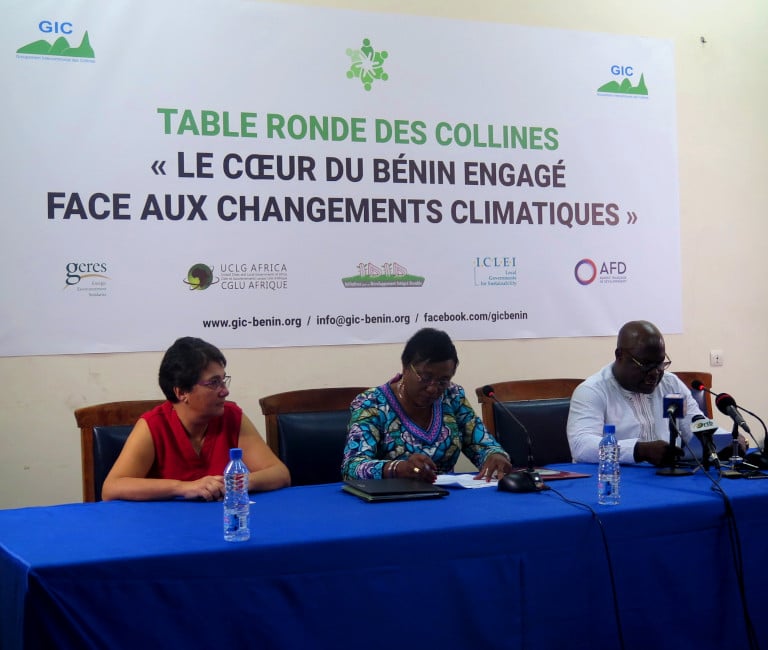Collines département, the heart of Benin committed to climate action
In Cotonou on 13 November 2018, the six mayors of the Groupement Intercommunal des Collines solemnly signed the “Collines Charter for low-carbon, climate change-resilient development”.
Collines département in central Benin enjoys good rainfall conditions and more than 60% of its population is engaged in agriculture.
These days, however, the 716,000 inhabitants of the département are seeing significant changes in the climate: excessive heat, significant shift in the rainy season with the disappearance of “short” seasons, floods, episodes of drought and increasingly frequent violent winds.
These phenomena have a particularly serious impact on infrastructure (roads destroyed, buildings losing their roofs, etc.) and agriculture (failure of cashew nut flowers, destruction of lowland crops, losses of seeds and harvests, degraded soils, accentuated difficulties in managing transhumance, etc.). In the Collines, 1,590,000 tonnes of food crops are produced every year but agricultural losses, estimated at 4% per year, could reach 6% per year by 2025 with a heavy impact on farm income.
In the fight against climate change at local level, the Groupement Intercommunal des Collines (GIC) is a trailblazer.
For all its six municipalities, the GIC has launched a programme of strategic, operational climate change mitigation and adaptation activities with its technical and financial partners (AFD, IDID, GERES). A call for projects has already been put out to fund work to restore degraded land. Training and finance will be available for activities carried out by four local CSOs.
With a view to sharing information on its programmes with other players at both national and international level, the GIC organized a round table in Cotonou on 13 November. The objective: to demonstrate to the authorities and donors its territorial project to tackle the effects of climate change by means of four programmes built around the issues identified.

This round table also provided an opportunity to start direct exchanges with the technical and financial partners. Nevertheless, to get over the difficulties encountered in accessing the necessary finance to put these commitments into practice, a lot of work and trips to the capital, three hours away by road, will still be needed to try to raise further funds.
Other avenues, such as new forms of finance, will also be researched. Finally, to support its efforts, the GIC also seeks to establish a decentralized co-operation link with a local authority in the North.
In conclusion, let’s recall the remarks of Professor Euloge Ogouwale, geographer and climatologist at Abomey-Calavi University who, when invited to speak at the round table, exclaimed:
“For the first time, I can see that the real stakeholders, the producers, are being involved”.
That was probably the main achievement of that round table: on that 13 November in Cotonou, it was above all local elected representatives, farmers and women from an essentially rural territory who took the floor!
Jacques Dagoué, President of the GIC
Marie-Noëlle Reboulet, President of Geres
WOULD YOU LIKE TO TAKE ACTION
AND SUPPORT WHAT WE DO?
Tell us who you are and find your means of action.
